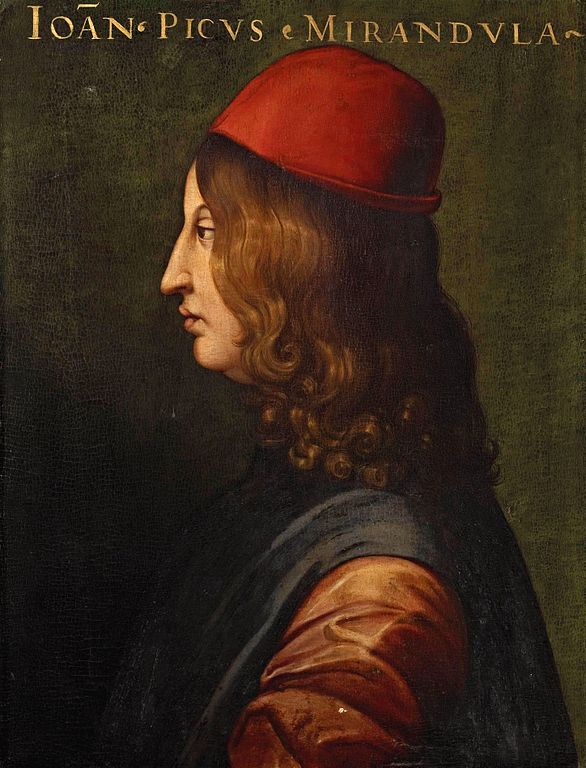
In Platonic Love last night we discussed the influence of Plato’s Phaedrus on two very different philosophical schools.
First came the influence on Renaissance humanism through Marsilio Ficino and Pico della Mirandola and their revival of the philosophical aspiration towards ecstatic union with the divine:
Who would not wish to be so inspired by those Socratic frenzies which Plato sings in the Phaedrus that, swiftly fleeing this place, that is, this world fixed in evil, by the oars, so to say, both of feet and wings, he might reach the heavenly Jerusalem by the swiftest course? Let us be driven, Oh Fathers, by those Socratic frenzies which lift us to such ecstasy that our intellects and our very selves are united to God.
Oration on the Dignity of Man (1486) by Pico della Mirandola
A much later influence of the Phaedrus came though the long essay ‘Plato’s Pharmacy’ (in Dissemination ; pdf) by the modern French sceptic, Jacques Derrida. Derrida analyses the use of the word pharmakon by the character Socrates in the Phaedrus and relates this to the Socratic argument against the use of writing as a means of teaching and as a medium for the communication of philosophical ideas generally. Socrates prefers oral discussion, that is (Socratic) dialogue. Derrida’s ‘deconstruction’ of the Socratic argument against writing effects a critique of Plato’s very theory of forms and introduces the method of scepticism known as ‘Deconstruction’.
